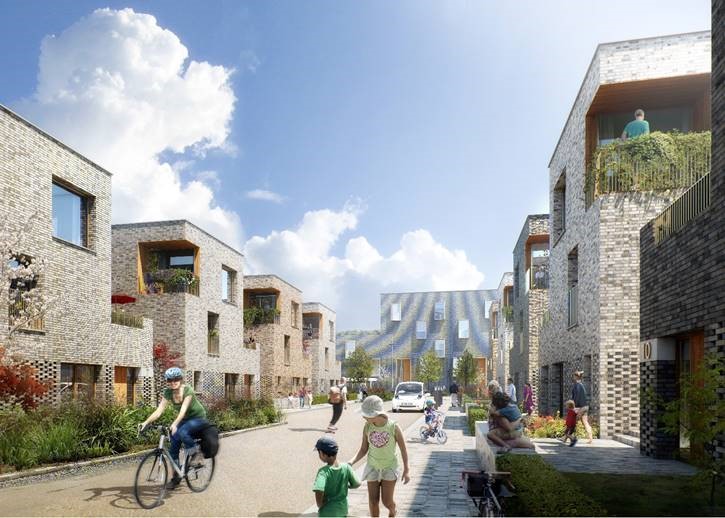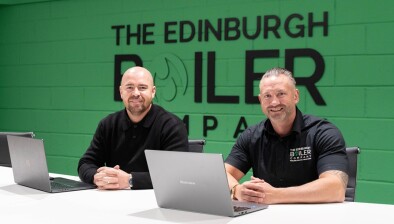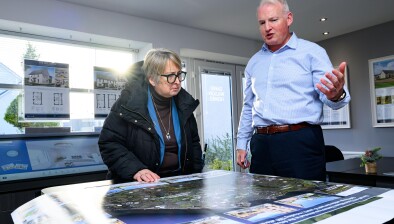Edinburgh’s council homes to be carbon neutral under £2.9bn strategy
Moves are being made to make council housing in Edinburgh some of the most sustainable in the country as part of an ambitious £2.89 billion programme.

The council is currently regenerating Granton Waterfront
A new report from the City of Edinburgh Council reveals the significant investment that has already been made by the local authority in improving the energy efficiency of new and existing properties, helping to make homes warmer and more environmentally friendly, as well as reducing fuel poverty.
More than half of council homes have benefitted from energy efficiency measures over the last five years, including the installation of 7,100 new heating systems, 1,600 homes fitted with new windows and doors and 2,900 homes insulated. This work now means that over 70% of council homes are now compliant with EESSH - the kitemark for sustainable architecture - and plans are being developed to roll this out even further to generate an 85% reduction in Co2 emissions.
The findings will be considered alongside a report updating on progress towards the council’s 30-year housing strategy, which aims to build 20,000 new, affordable, carbon neutral homes and deliver improvements to the neighbourhoods where council tenants live by retrofitting properties to improve their energy efficiency.
The update confirms that over £310m has already been invested, delivering more than 28,000 improvements, 600 new homes and key services aimed at reducing tenants’ cost of living. An additional £390m in capital investment is set to be made between now and 2030 - bringing the total level of investment to £2.89bn.
Councillor Kate Campbell, Housing, Homelessness and Fair Work Convener, said: “These are two incredibly ambitious plans which together form the bedrock of our housing strategy over the next ten years.
“The need for more social homes in Edinburgh is acute – and as a city we must respond. But alongside this we know there is more work to do improving existing homes and estates. This is a strategy to promote wellbeing, to improve mental health, to reduce carbon emissions alongside fuel bills. To make sure that everybody has a home where they feel safe and secure, that is warm and easy to heat. And crucially, that they can afford.
“We have one of the most ambitious housebuilding plans in the country and a record number of new homes are being approved. Over 3,500 are in design and development and 800 are under construction, and our aim is to put carbon neutrality at the heart of every single project.
“We’re listening to tenants. It’s important that they shape the strategy and direct spending. Tenants are telling us that their priorities are building new homes, improving existing ones, reducing the cost of living and improving services. And so this is a strategy that does just that.”
Councillor Mandy Watt, housing, homelessness and fair work vice convener, said: “Every year we ask tenants how they would like us to reinvest their rent and their feedback directly shapes our housing plans. This year’s consultation is ongoing but we’ve already had a really encouraging response, and tenants’ views will help us to make sure we are investing in the right things. The consultation runs until 30 November and I would encourage everyone to get involved and have their say.
“All of the steps we’re taking to make homes more sustainable are also making them warmer and more cost efficient - helping us to tackle poverty as well as climate change - and we’re also investing in our advice and support services.
“I’m pleased so much progress has already been made and we must continue to upgrade homes, prioritise energy efficiency and spark investment and regeneration in areas like Granton, Western Harbour and Craigmillar. This work will be a major priority for supporting the health of residents and of our environment. Crucially, it will also boost employment and help our economy recover from the challenges of the pandemic.”

















